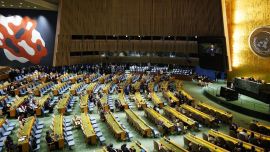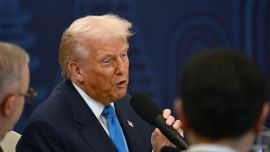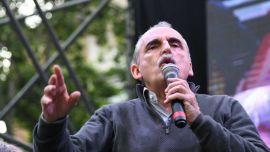The philosopher Giorgio Agamben has written that, via Covid-19, states have found an ideal excuse for accelerating exceptional powers. Giorgio was writing in Italy, during the dramatic overture to the pandemic opera in the Western world, in March and April. Italy’s health crisis contrasted with the rabid scepticism of Giorgio, who became the laughing-stock of those in the know – I myself wrote here that Giorgio seemed a philosopher who had fallen in love with his theory, which could not resist reality.
Now I see that I was wrong, that what Giorgio was describing in horror had its own universe of real and specific application: Argentina. The “state of exception”: an order with militarised and police enforcement whereby the government acquires unusual powers over its citizens and their civil liberties. In the name of “health,” the state authorities restrict liberties in the name of a “safety,” which only they can guarantee.
“Plague is the moment when the survey of the population is carried to extremes where unusual communications, disorderly communities and forbidden contacts may not exist,” wrote Michel Foucault, anticipating the bacchanalian hordes of joggers, the “runners” attacked by all the organs of the government.
Quarantine has been renewed, presented as a lifestyle by the government. Argentina locked down just a few days after Italy – 100 days later, after four extensions, it has been stiffened. In those months the national government and its committee have toured the provinces, taking the disease to places without virus (#AlbertoQuedateEnCasa). The state boasts of its freedom to act above the law, even playing at expropriating bankrupt companies like Vicentin. The police roam the streets while the state planners and employees stay calm because they continue to collect the same salaries.
What does “a state of exception” mean when the government’s power is inseparable from the interests of the corporation which composes it? The Argentine state functions as a cosy caste, as demonstrated by the extraordinary benefits accorded to former vice-president Amado Boudou following being granted house arrest. No national official has hinted at lowering their salaries while masses of people are going broke.
A “state of exception” means a “government of scientists” who ignore international studies indicating that the virus is not contagious in the open air and that children can suffer serious psychological consequences if they continue being locked up. In the country with the most psychologists per capita in the world, this lack of interest in the mental effects of quarantine seems incredible.
What Agamben did not foresee is that the judicial system would not function, that Congress would not session and when it does, the microphones of the opposition are silenced. Or maybe he did and that would be his definition of the “state of exception.”
In El futuro después del Covid, a collection of essays compiled by the Cabinet chief, the absence of technology is surprising. Although some texts are more interesting than others, most of the authors share the fantasy of Covid as an exterminating angel which has come along to confirm what they already knew, that capitalism is finished. With the Argentine people confirmed as visionaries of that inevitable fall by electing Alberto. Rather than thinking of the future, some seem to celebrate that only the state will be left standing. A State which giveth and taketh away, a tribal god which roars and only seems to go unheard by pagan runners.
Giorgio was not describing Europe – the anti-liberal and anti-democratic elements in the Kirchnerite agenda apply his analysis literally in Argentina. The deputy Fernanda Vallejos put forward that the state may lay claim to shares in the companies it assists – the complete opposite of the European salvage of the private sector. Cabinet Chief Santiago Cafiero has explained: We’re not going to ask for part of “every” company. These expressions depict the state as a vulture, waiting to see your body stretched out before swooping down to chew off its bit.
In the “State of Exception,” the state decides whom it will permit to live. With its infinite quarantine, the government has fostered the death of self-employed and private-sector workers. Can there be greater scorn for human activity than choosing who lives and who dies, according to their proximity to a deified State?
* Pola Oloixarac is an Argentine author, journalist, and translator. This article is a translation of her regular weekly column in Perfil.























Comments